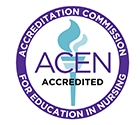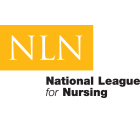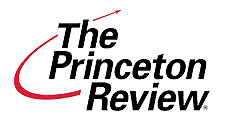Title (title extra extra large)
Online BSN to Doctor of Nursing Practice Program Guide
Column
Ref:column (content1)
Column
Ref:column (content2)
Content
The complexity of modern health care, an ongoing concern about patient outcomes, and a shortage of qualified nurses have created a demand for advanced practice nurses.
If you’re an RN with a bachelor’s degree in nursing, the Regis Doctor of Nursing Practice program can prepare you for the highest level of nurse practitioner opportunities — now and in the future. Choose from six concentrations: Psychiatric Mental Health (PMHNP), Adult Gerontology – Primary Care (AGPCNP), Adult Gerontology – Acute Care (AGACNP), Pediatrics (PNP), Women’s Health (WHNP), or Family (FNP).
Title (title large)
Calendar
Content
Credits: 66-78
Courses: 24-25
Duration: 40-44 months
Application Deadline:
March 30, 2026
Upcoming Start Date:
May 4, 2026
Button (primary)
Button Label
Apply Now
Title (title large)
At a Glance
Title (title large)
Curriculum
Title (title medium)
Core Courses
Summary
NU 601 Nursing Theory
Main Content
This course focuses on the historical development of theory from the perspective of nursing science. Nursing theory and its relationship to research and evidenced-based nursing practice, as well as approaches to theory construction are explored. Students will analyze selected concepts, the building blocks of theories. Students will critique specific nursing theories in relation to their own belief systems, examining the concepts of the major paradigms within the discipline of nursing as well as other human science disciplines. Early "grand nursing theories" and "mid-range nursing theories" more recently developed will be evaluated. Emphasis will be on understanding individual nursing theories and borrowed theories from other disciplines and their application to nursing practice, nursing research, nursing leadership, and nursing education.
Summary
NU 606 Advanced Pathophysiology
Main Content
This course will provide an in-depth study of the concepts of the science of pathology for graduate nursing students. It will cover the physiological causes and development of diseases; functional and secondary changes they cause; and their course, complications, and appropriate treatments. Specific examples of disease states throughout the lifespan will be evaluated. The course will treat all levels of pathology from molecular to cellular, tissue, organ, and organ systems, emphasizing the role of homeostasis and the ensuing disturbances, which lead to disease conditions.
Summary
NU 605 Concepts in Nurse Leadership
Main Content
This course focuses on issues of leadership role development in professional nursing. Using role theory, students will explore concepts of role mastery, congruence and conflict as well as the role of nursing leadership in the broader organizational context. Emphasis in NU 605 is on the analysis of leadership and related theories as these apply to the individual practice of the nurse leader.
Summary
HP 609 Health Policy, Politics and Perspectives
Main Content
This course examines U.S. health care policy and the political challenges related to delivery, cost, quality, and access to care. The course is in seminar format which allows students to observe the policy-making process and the role of government and private stakeholders in the financing and delivery of services through a field experience attending health policy-related events and meetings.
Summary
NU 623 Regulatory Issues: Nurse Leadership
Main Content
Utilizing current nursing research, evidence-based practice and evolving health care trends, students will complete a fieldwork experience in the area of administration/leadership in a healthcare setting or professional organization. The students will analyze examples of current issues relating to the health care delivery 440 systems that impact on nursing practice. (Practice component of 40 hours)
Summary
NU 629 Health Promotion - Disease Prevention
Main Content
This course will address health promotion and disease prevention across the lifespan. The focus will be in developing, evaluating, and educating populations on preventative health care behaviors. Populations served, including vulnerable populations, will be discussed in relation to how advanced practice nurses shape the development of community-based care and population-based systems delivery programs. Students will analyze the impact of social, cultural, ecological, and systems of care delivery factors on healthcare disparities across population groups. Emphasis is on application of sociocultural, nursing theories, and methods to analyze healthcare phenomena as an advanced practice nurse.
Summary
NU 641 Advanced Clinical Pharmacology
Main Content
This course is required for students in the Nurse Practitioner Advanced Graduate Program. Course content addresses pharmacological interventions for disease categories and expands the foundation in pharmacotherapeutics necessary for nurse practitioners in clinical practice. This course is designed to prepare students for the role of prescriber based on national guidelines and evidence-based practice.
Summary
NU 650 Advanced Health Assessment
Main Content
The Advanced Health Assessment course is developed for the nurse practitioner student. Students incorporate, apply and adapt assessment skills appropriate to all ages in a primary care setting. Using critical thinking skills, students analyze assessment data toward differential diagnosis and determine the need for additional assessment information such as laboratory data, specialty referral and diagnostic testing. Students are required to apply history and physical assessment skills on a weekly basis. Written communication of the weekly history and physical examination as well as data analysis and problem list development is required. The effects of age, gender, culture, religion, socioeconomic status, locus of control, lifestyle and risk factors are considered in developing a baseline for therapeutic nursing intervention by the nurse in advanced practice.
Summary
NU 668 Roles and Issues in APN
Main Content
This course focuses on the role and scope of practice of the advanced practice nurse. Professional licensure, credentialing and requirements for prescriptive privileges are addressed. In a hybrid format, course content focuses on legal and ethical standards of care and professional competencies for entry into advanced practice in the primary care setting. The course includes current and projected trends in primary practice as they affect nurses in advanced practice.
Summary
NU 710 Informatics in Health Care
Main Content
Informatics in Health Care explores the background and theory of nursing and health care information systems. Strategies are examined for analyzing, designing/developing, implementing, and evaluating information systems for health care professionals and consumers with an emphasis on improving the quality of care delivery. Content and projects are applicable to advanced practice nurses, nurse educators and researchers, nurse leaders, executives and other health care professionals.
Summary
NU 713 Epidemiology/Biostatistics
Main Content
Using the quantitative science of epidemiology and biostatistics, this course examines the basis for identification and analysis of factors that promote and inhibit the health of populations. The course includes the history and methods of epidemiology and contemporary public health issues as well as selected biostatics. Epidemiological methods and biostatics are applied to nursing practice, leadership, education and research.
Summary
NU 716 Cultural Perspectives in Health Care
Main Content
This course focuses on the complexities inherent in the culture and health interface and how these variable influence quality health care in the context of the American healthcare system. Frameworks, theories, and models that explore culture and health, generally, and among selected populations, specifically, are identified. Within a cross-cultural perspective, quality health care is considered from the perspectives of the individual, family, group or community client, and of the nurse who may be in direct care, educational, leadership or research positions.
Summary
NU 726 Advanced Research Methods for EBP I
Main Content
This is the first of two sequential courses that provides the students with an in-depth analysis of quantitative and qualitative research methods used in nursing and health care research. Throughout the course, students will use critical thinking skills to analyze qualitative and quantitative methods as a framework for making decisions regarding clinical problems. Evidence-based practice models will be analyzed to facilitate the identification of a practice problem and the development of an extensive review of the literature. Pre-requisite NU 740.
Summary
NU 727 Advanced Research Methods for EBP II
Main Content
This is the second of two sequential courses that will provide the students with the further development of their evidence-based practice project. This course will focus on in-depth analysis of quantitative and qualitative data collection and analysis methods. Utilizing an EBP model, students will develop a comprehensive plan for project implementation and evaluation.
Summary
NU 740 Scholarly DNP Project I
Main Content
This seminar-formatted course is the first of a four-course series designed to students in implementing an evidence-based practice (EBP) project. This course will introduce students to the capstone process and progression through the four- course series. Discussions of project scope and quality and development of an EBP project proposal will take place. Students will work with faculty to plan, design and evaluate evidence based projects. Students will begin the process of program management, gather and critically appraise evidence, develop goals, determine expected project outcomes and establish an appropriate time-management plan for the project. As part of this four course sequence, students will engage in 400 hours of mentored experience from the inception of the EBP project to dissemination of the findings.
Summary
NU 741 Scholarly DNP Project II
Main Content
This seminar-formatted course is the second of a four-course series designed to assist students in implementing an evidence-based practice (EBP) project. This course will build upon work completed in the first course, with the focus on project management, evaluation methods, completion of an EBP project proposal and hearing, and the submission of an IRB application. Students will continue in their completion of 400 hours of mentored experience from the inception of the EBP project to dissemination of the findings.
Summary
NU 742 Scholarly DNP Project III
Main Content
This seminar-formatted course is the third of a four-course series designed to assist students in implementing an evidence-based practice (EBP) project. The focus of this course is on the implementation of the evidence-based practice project completed in NU 741 Scholarly DNP Project II and subsequent collection of data for evaluation of the project. Students will continue in their completion of 400 hours of mentored experience from the inception of the EBP project to dissemination of the findings.
Summary
NU 743 Scholarly DNP Project IV
Main Content
This seminar-formatted course is the fourth of a four-course series designed to assist students in completing an evidence-based practice (EBP) project. The focus of this course is on analyzing data obtained from the evaluation process and dissemination of the project findings. Students must successfully defend their project orally as well as submit an article to disseminate their EBP project findings and will have completed the 400 hours of mentored experience in this course publication or abstract for professional presentation and an executive summary.
Title (title medium)
Adult Gerontology – Acute Care (AGACNP)
Summary
NU 664F Clinical Concentration Course: Acute and Critical Care of the Adult-Gerontology Client I
Main Content
This is the first of two concentration courses that integrate concepts from courses in pharmacology, pathophysiology, and health assessment with nursing theory, process, and research. It will foster development of skills in assessment, problem identification, decision-making and clinical management of the adult-geriatric client, in the acute care/critical care setting, utilizing critical thinking. Discussions on health promotion, policy, organizational issues, access to care, and advanced professional practice as they relate to the adult-gerontology population in the acute care/critical care setting are included.
Summary
NU 664F-X Clinical Concentration Seminar: Acute and Critical Care of the Adult-Gerontology Client I (300 Clinical Hours)
Main Content
Classroom learning from course NU 664F is applied in supervised clinical preceptorship experiences of 300 hours.
Summary
NU 655 Acute and Critical Care Pharmacology
Main Content
The purpose of this course is to provide a comprehensive and in-depth background in acute and critical care pharmacotherapy for the adult-geriatric patient. This course will address the pharmacology and appropriate clinical use of agents used in the treatment of selected acute disorders found in acutely/critically ill patients. Recent advances in pharmacotherapy, personalized management strategies, and controversial issues will be included and emphasized.
Summary
NU 665F Clinical Concentration Course: Acute and Critical Care of the Adult-Gerontology Client II
Main Content
This is the second of two concentration courses that integrate concepts from courses in pharmacology, pathophysiology, and health assessment with nursing theory, process, and research. It will foster development of skills in assessment, problem identification, decision-making and clinical management of the acute and critical care adult-geriatric client through use of critical thinking. Discussions on health promotion, policy, organizational issues, access to care, and advanced professional practice as they relate to the adult-gerontology population in the acute care and critical care setting are included.
Summary
NU 665F-X Clinical Concentration Seminar: Acute and Critical Care of the Adult-Gerontology Client II (300 Clinical Hours)
Main Content
Classroom learning from course NU 665F is applied in supervised clinical preceptorship experiences of 300 hours.
Summary
NU 675F-X Final NP Clinical Immersion Course (200 Clinical Hours)
Main Content
This final course in the NP curriculum is an immersive clinical practice experience meant to synthesize the knowledge gained in all previous courses in the curriculum to demonstrate the integration of the program competencies and role-specific competencies in preparing the student for NP practice in their specialization. Supervised clinical preceptorship experience of at least 200 hours.
Title (title medium)
Adult Gerontology – Primary Care (AGPCNP)
Summary
HP 626 Sociological, Political, and Economic Perspectives in Gerontology
Main Content
This course addresses social, political, and economic factors that impact the aging experience. Sociological, political, and economic theory will be incorporated as a form of understanding resource allocation, priorities, and cultural considerations. The impact of these factors on healthy aging related to income, housing, health care, employment, and policy will be described.
Summary
NU 664E Clinical Concentration Course – Adult Gerontology Primary Care I
Main Content
This is the first of two courses in primary care of the adult-gerontology client. This course integrates concepts from courses in pharmacology, pathophysiology, and health assessment with nursing theory, process, and research. It fosters development of skills in assessment, problem identification in decision making and clinical management of the adult-gerontology client through the life cycle. Discussions focus on health promotion, organizational issues, access to care, and advanced professional practice as they relate to the adult-gerontology system.
Summary
NU 664E-X Clinical Concentration Seminar – Adult-Gerontology Primary Care I (300 Clinical Hours)
Main Content
Classroom learning from course NU 664E is applied in supervised clinical preceptorship experiences of 300 hours.
Summary
NU 665E Clinical Concentration Course – Adult-Gerontology Primary Care II
Main Content
This course continues to integrate concepts from courses in pharmacology, pathophysiology, and health assessment with nursing theory, process, and research. It will foster development of skills in assessment, problems, decision making and clinical management of families through the life cycle. Discussions on health promotion, policy, organizational issues, access to care, and advanced professional practice as they relate to the family system are included.
Summary
NU 665E-X Clinical Concentration Seminar – Adult-Gerontology Primary Care II (300 Clinical Hours)
Main Content
Classroom learning from course NU 665E is applied in supervised clinical preceptorship experiences of 300 hours.
Summary
NU 675E-X Final NP Clinical Immersion Course (200 Clinical Hours)
Main Content
This final course in the NP curriculum is an immersive clinical practice experience meant to synthesize the knowledge gained in all previous courses in the curriculum to demonstrate the integration of the program competencies and role-specific competencies in preparing the student for NP practice in their specialization. Supervised clinical preceptorship experience of at least 200 hours.
Title (title medium)
Family (FNP)
Content
Choose 1 of 5*
Summary
HP 626 Sociological, Political, and Economic Perspectives in Gerontology
Main Content
This course addresses social, political, and economic factors that impact the aging experience. Sociological, political, and economic theory will be incorporated as a form of understanding resource allocation, priorities, and cultural considerations. The impact of these factors on healthy aging related to income, housing, health care, employment, and policy will be described.
Summary
NU 635 Complementary Therapy
Main Content
This course provides an objective introductory perspective on the newly emerging field of Complementary/Alternative Modalities (CAM). It examines the traditional, biomedical, and nursing theoretical bases for CAM. It critically examines available research and offers empirical evidence that will allow the nurse to act as a teacher and advocate for the client as well as to assume a leadership and management role on the interdisciplinary team. While the course explores a range of modalities and systems, it focuses in-depth on those clearly within the domain of nursing practice.
Summary
NU 643 Advanced Psychopharmacology
Main Content
This course focuses on developing knowledge and skills in the safe and effective use of medication for psychiatric mental health problems in populations across the lifespan. The curriculum integrates knowledge from previous courses such as pharmacology, pathophysiology, and health assessment and complements the Psychiatric Mental Health curriculum. Course content addresses psychopharmacological interventions for disease categories and expands the foundation in pyschopharmacotherapeutics necessary for nurse practitioners in clinical practice. This course is designed to prepare students for the role of prescriber based on national guidelines and evidence-based practice. Prerequisite: NU 641
Summary
NU 661* Care of the Childbearing Woman
Main Content
This course integrates concepts from courses in pharmacology, pathophysiology, and health assessment with nursing theory, process, and research. It fosters development of skills in assessment, problem identification in decision making and clinical management of obstetrical client through the childbearing process. Discussions focus on health promotion, organizational issues, access to care, and advanced professional practice as they relate to the obstetrical client. Classroom learning is applied in supervised clinical preceptorship experiences associated with NU 664A/B/D or NU 665 A/B/D.
Summary
NU 664B Clinical Concentration Course – Primary Care of the Family I
Main Content
This course integrates concepts from the concurrent courses in pharmacology, pathophysiology, and health assessment with nursing theory, process, and research. It will foster development of skills in decision making and clinical management of families through the life cycle. Discussions will focus on issues of health, policy, organizational issues, access to care, and advanced professional practice as they relate to the family system.
Summary
NU 664B-X Clinical Concentration Seminar – Primary Care of the Family I (300 Clinical Hours)
Main Content
Classroom learning from course NU 664B is applied in supervised clinical preceptorship experiences of 300 hours.
Summary
NU 665B Clinical Concentration Course – Primary Care of the Family II
Main Content
This is the second course in primary care of the family. This course continues the development of skills in decision making and clinical management of families through the life cycle.
Summary
NU 665B-X Clinical Concentration Seminar – Primary Care of the Family II (300 Clinical Hours)
Main Content
Classroom learning from course NU 665B is applied in supervised clinical preceptorship experiences of 300 hours
Summary
NU 670* Teaching & Learning Seminar in Nurse Education (24 field work hours)
Main Content
This course provides an overview of various components involved in the dynamic of teaching/learning: philosophy, educational psychology, curriculum, methodology, evaluation, and assessment. Emphasis is placed on the development of the nurse educator as a reflective practitioner. Students will discuss social, ethical, legal, and professional issues related to current and future student populations. Classroom learning is applied in a practicum experiences of 25 hours.
Summary
NU 675B-X Final NP Clinical Immersion Course (200 Clinical Hours)
Main Content
This final course in the NP curriculum is an immersive clinical practice experience meant to synthesize the knowledge gained in all previous courses in the curriculum to demonstrate the integration of the program competencies and role-specific competencies in preparing the student for NP practice in their specialization. Supervised clinical preceptorship experience of at least 200 hours.
Title (title medium)
Pediatrics (PNP)
Content
Choose 1 of 4*
Summary
NU 635* Complementary Therapy
Main Content
This course provides an objective introductory perspective on the newly emerging field of Complementary/Alternative Modalities (CAM). It examines the traditional, biomedical, and nursing theoretical bases for CAM. It critically examines available research and offers empirical evidence that will allow the nurse to act as a teacher and advocate for the client as well as to assume a leadership and management role on the interdisciplinary team. While the course explores a range of modalities and systems, it focuses in-depth on those clearly within the domain of nursing practice.
Summary
NU 643* Advanced Psychopharmacology
Main Content
This course focuses on developing knowledge and skills in the safe and effective use of medication for psychiatric mental health problems in populations across the lifespan. The curriculum integrates knowledge from previous courses such as pharmacology, pathophysiology, and health assessment and complements the Psychiatric Mental Health curriculum. Course content addresses psychopharmacological interventions for disease categories and expands the foundation in pyschopharmacotherapeutics necessary for nurse practitioners in clinical practice. This course is designed to prepare students for the role of prescriber based on national guidelines and evidence-based practice. Prerequisite: NU 641
Summary
NU 661* Care of the Childbearing Woman
Main Content
This course integrates concepts from courses in pharmacology, pathophysiology, and health assessment with nursing theory, process, and research. It fosters development of skills in assessment, problem identification in decision making and clinical management of obstetrical client through the childbearing process. Discussions focus on health promotion, organizational issues, access to care, and advanced professional practice as they relate to the obstetrical client. Classroom learning is applied in supervised clinical preceptorship experiences associated with NU 664A/B/D or NU 665 A/B/D.
Summary
NU 664A Clinical Concentration Course – Primary Care of the Child I
Main Content
This course integrates concepts from concurrent courses in pharmacology, pathophysiology, and health assessment with nursing theory, process, and research. It will foster development of skills in decision making and clinical management of children. Discussions will focus on issues of health, policy, organizational issues, access to care, and advanced professional practice as they relate to the pediatric client.
Summary
NU 664A-X Clinical Concentration Seminar – Primary Care of the Child I (300 Clinical Hours)
Main Content
Classroom learning of NU-664A is applied in supervised clinical preceptorship experiences of 300 hours.
Summary
NU 665A Clinical Concentration Course – Primary Care of the Child II
Main Content
This is the second course in primary care of the child. This course continues the development of skills in decision making and clinical management of children.
Summary
NU 665A-X Clinical Concentration Seminar – Primary Care of the Child II (300 Clinical Hours)
Main Content
Classroom learning from course NU 665A is applied in supervised clinical preceptorship experiences of 300 hours.
Summary
NU 670* Teaching & Learning Seminar in Nurse Education (24 field work hours)
Main Content
This course provides an overview of various components involved in the dynamic of teaching/learning: philosophy, educational psychology, curriculum, methodology, evaluation, and assessment. Emphasis is placed on the development of the nurse educator as a reflective practitioner. Students will discuss social, ethical, legal, and professional issues related to current and future student populations. Classroom learning is applied in a practicum experiences of 25 hours.
Summary
NU 675A-X Final NP Clinical Immersion Course (200 Clinical Hours)
Main Content
This final course in the NP curriculum is an immersive clinical practice experience meant to synthesize the knowledge gained in all previous courses in the curriculum to demonstrate the integration of the program competencies and role-specific competencies in preparing the student for NP practice in their specialization. Supervised clinical preceptorship experience of at least 200 hours.
Title (title medium)
Psychiatric Mental Health (PMHNP)
Summary
NU 643 Advanced Psychopharmacology
Main Content
This course focuses on developing knowledge and skills in the safe and effective use of medication for psychiatric mental health problems in populations across the lifespan. The curriculum integrates knowledge from previous courses such as pharmacology, pathophysiology, and health assessment and complements the Psychiatric Mental Health curriculum. Course content addresses psychopharmacological interventions for disease categories and expands the foundation in pyschopharmacotherapeutics necessary for nurse practitioners in clinical practice. This course is designed to prepare students for the role of prescriber based on national guidelines and evidence-based practice. Prerequisite: NU 641
Summary
NU 646 Theory and Practice of Contemporary Psychotherapies
Main Content
The focus of this course is on theories and methods used by the advanced practice psychiatric mental health nurse as broadly applied across treatment settings. Students will explore theory and techniques associated with various therapeutic models with regard to theoretical underpinnings, therapeutic action, techniques, relationship between therapist and patient, and application to different diagnostic populations and family systems. Students will gain learning experiences that promote satisfactory assimilation of mental health and mental illness concepts in their delivery of advanced practice nursing across the lifespan. Emphasis is placed on evidence-based practice and treatment guidelines utilizing a range of theoretical and conceptual models for conducting psychotherapy and supporting recovery. Selected psychotherapeutic theories will be studied and application made where possible in practicum placements, seminar discussions, and classroom settings.
Summary
NU 664C Clinical Concentration Course – Primary Care of the Psychiatric Mental Health Client I
Main Content
The focus of this course is developing knowledge and skill in the assessment and diagnosis of psychiatric mental health problems in the populations across the lifespan. The curriculum also integrates knowledge from previous courses such as pharmacology, pathophysiology, and health assessment. Psychiatric nurse practitioner students utilize many theoretical sources in the development of their practical skills and draw from neurophysiology, neuropsychology, family systems, and biopsychosocial approaches.
Summary
NU 664C-X Clinical Concentration Seminar – Primary Care of the Psychiatric Mental Health Client I (300 Clinical Hours)
Main Content
Classroom learning of special populations such as the elderly and the chronic mentally ill are emphasized and applied in supervised clinical preceptorship experiences of 300 hours.
Summary
NU 665C Clinical ConcentrationCourse – Primary Care of the Psychiatric Mental Health Client II
Main Content
Nurse practitioner students will continue to develop knowledge and skill in the assessment and diagnosis of mental health problems in adults. In-depth study of geriatric mental health problems, such as mood disorders, dementia, and delirium, will prepare students to work with this complex population upon graduation.
Summary
NU 665C-X Clinical Concentration Seminar – Primary Care of the Psychiatric Mental Health Client II (300 Clinical Hours)
Main Content
Classroom learning from course NU 665C is applied in supervised clinical preceptorship experiences of 300 hours.
Summary
NU 675C-X Final NP Clinical Immersion Course (200 Clinical Hours)
Main Content
This final course in the NP curriculum is an immersive clinical practice experience meant to synthesize the knowledge gained in all previous courses in the curriculum to demonstrate the integration of the program competencies and role-specific competencies in preparing the student for NP practice in their specialization. Supervised clinical preceptorship experience of at least 200 hours.
Title (title medium)
Women’s Health (WHNP)
Summary
NU 661 Care of the Childbearing Woman
Main Content
This course integrates concepts from courses in pharmacology, pathophysiology, and health assessment with nursing theory, process, and research. It fosters development of skills in assessment, problem identification in decision making and clinical management of obstetrical client through the childbearing process. Discussions focus on health promotion, organizational issues, access to care, and advanced professional practice as they relate to the obstetrical client. Classroom learning is applied in supervised clinical preceptorship experiences associated with NU 664A/B/D or NU 665 A/B/D.
Summary
NU 664D Clinical Concentration Course – Primary Care of the Woman I
Main Content
This course integrates concepts from courses in pharmacology, pathophysiology, and health assessment with nursing theory, process, and research. It fosters development of skills in assessment, problem identification in decision making and clinical management of women's health issues. Discussions focus on health promotion, organizational issues, access to care, and advanced professional practice as they relate to women's health.
Summary
NU 664D-X Clinical Concentration Seminar – Primary Care of the Woman I (300 Clinical Hours)
Main Content
Classroom learning from course NU 664D is applied in supervised clinical preceptorship experiences of 300 hours.
Summary
NU 665D Clinical Concentration Course – Primary Care of the Woman II
Main Content
This course is the second of two concentration courses focusing on developing knowledge and skill in the assessment, diagnosis, and treatment of the adult population with a special focus on health care for adolescent females and women. This course integrates concepts from courses in pharmacology, pathophysiology, and health assessment with nursing theory, process, and research. It fosters development of skills in assessment, problems, decision making, and clinical management of women's health issues. Discussions focus on health promotion, disease prevention, recognition and management of acute and chronic conditions, organizational issues, access to care, and advanced professional practice as they relate to caring for patients in primary care settings.
Summary
NU 665D-X Clinical Concentration Seminar – Primary Care of the Woman II (300 Clinical Hours)
Main Content
Classroom learning from course NU 665D is applied in supervised clinical preceptorship experiences of 300 hours.
Summary
NU 675D-X Final NP Clinical Immersion Course (200 Clinical Hours)
Main Content
This final course in the NP curriculum is an immersive clinical practice experience meant to synthesize the knowledge gained in all previous courses in the curriculum to demonstrate the integration of the program competencies and role-specific competencies in preparing the student for NP practice in their specialization. Supervised clinical preceptorship experience of at least 200 hours.
Content
Note: Curriculum is subject to change
Title (title large)
Accreditation and Rankings
Image

Image

Image

Image

Image

Title (title large)
Admission Requirements
Column
Ref:column (content1)
Column
Ref:column (content2)
Content
- BSN degree from regionally accredited institution and accredited nursing program
- Active unencumbered RN license
- Prerequisite course in statistics
- Two letters of recommendation
- Minimum 3.0 cumulative GPA preferred
Content
- Resume
- Personal statement
- TOEFL as appropriate
- No GRE required
- One year of critical care work experience (for AGACNP program only)
Content
The DNP, MSN, and Post-Master’s Certificate programs in nurse practitioner (NP) are designed to prepare students for national certification in one of several potential NP specializations. Graduation does not guarantee eligibility to practice or be licensed. Because the NP licensure requirements differ by state, please go to this link to review the licensure requirements in the state where you may be applying for a NP license. Individual state requirements are subject to change; therefore, go to the state website for the most recent information
Title (title large)
Ready to get started or have questions?
Content
Contact an admissions advisor by email at admissions@online.regiscollege.edu or by phone at 1-866-411-2159.